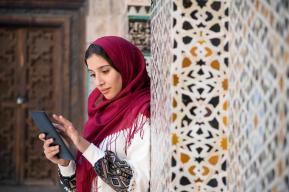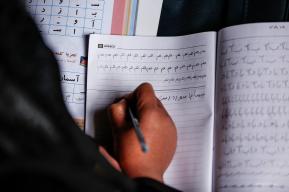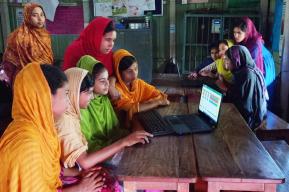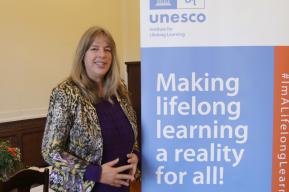News
Indian programme wins UNESCO Literacy Prize to promote multilingual education
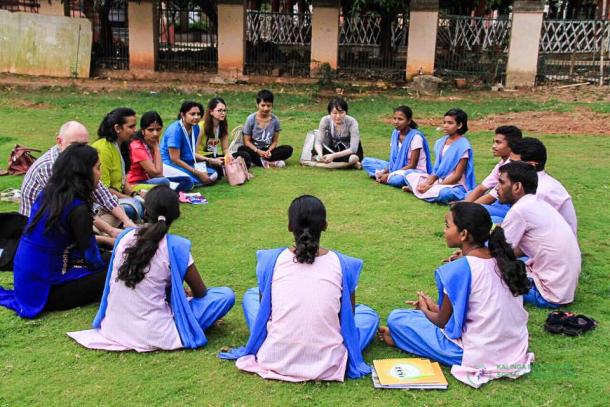
Kalinga Institute of Social Sciences is awarded the UNESCO King Sejong Literacy Prize 2022 for its Mother Tongue Based Multilingual Education’ programme.
The Kalinga Institute of Social Sciences, founded in 1993, aims to eradicate poverty and empower the underprivilege communities of the society through education. It is the first indigenous university to provide food, accommodation, health care, and other necessities along with education for free to over 60,000 students in Odisha, India.
Since 2013, the ‘Mother Tongue-Based Multilingual Education’ (MTBMLE) programme has been working to address the challenges of poor retention and dropout of indigenous students from elementary schooling due to the language barriers in the classroom and the incapacity of teachers to effectively deal with multilingual and multicultural classrooms. The programme, thereby, tries to bridge the gap between home and school language, and to facilitate students’ learning by validating both their home culture and traditional knowledge, better preparing them for the mainstream mode of education. The programme is in a hybrid format with face-to-face and distance learning modules, while using low-tech solutions such as TV, radio, and SMS. From 2013 to 2020, 12,000 students benefited from the programme, with 48 per cent being girls and young women and 96 per cent level of completion.
The programme was inspired not only by the Odisha context where ‘linguistic diversity and multilingualism is a way of life,’ but mainly by the belief that social and cultural values are embedded in languages, making them a tool for indigenous students to transmit intangible cultural heritage in their communities, expressing themselves and connecting with other students and teachers to better absorb learning. In this regard, Mr. Dwiti Vikramaditya, Vice President of Kalinga Institute of Social Sciences, shared that “MTBMLE is a programme which not only contributes towards improving the learning outcomes and academic performance of learners, but also contributes towards sustainability and inclusion. This was the inspiration to design and implement the programme at KISS”.
The programme was able to transform the traditional literacy learning environment by creating a new inclusive literacy space, which targets the needs of those learners most at risk of being left behind and marginalized in this rapidly changing world. Indeed, a positive impact on the performance and attitude of the students towards learning is developed and, at the same time, multilingual, social and cultural diversities are promoted, preserved and sustained over time.
Mr. Vikramaditya states that “in order to make indigenous people agents of change for their own community and the larger society, different innovative mechanisms have been adopted to facilitate students’ learning and targeting their needs, including transition curriculum, capacity building of teachers, participation of parents and other concerned stakeholders, peer group interaction, smart pictorial classrooms to name a few”.
During the pandemic the programme was able to continue to reach the most vulnerable and marginalized communities by adopting the medium of television as the main channel to deliver learning content to children who were at home and learning remotely, without access to mobile phones, laptops network community. After the pandemic experience, KISS started to create digital contents in local language (indigenous dialect), to address the consequent digital divide.
In the future, the programme aspires to become a centre of innovation, research, and development of teaching-learning materials in indigenous languages to help transform the learning spaces in India. However, to be able to scale up and reach this objective, it is necessary, in the words of Mr. Vikramaditya, “to create an ecosystem where various stakeholders come together to ensure that all children get educated by following an inclusive, sustainable and equitable approach”. In particular, the Institute hopes to be able to develop partnerships and collaborations with organizations, institutions, technology providers as well as governments to continue providing education, leveraging innovation and technology, to allow indigenous people not only to learn but also to promote and preserve their socio-cultural heritage, indigenous knowledge systems and sustainable ways of living.
For the International Literacy Day, the Institution sends an inspiring message to educational administrators and policymakers: “Only the learning spaces have the liberty to protect and preserve the dying languages and wisdom. Thus, we need to work harder and together to ensure that we have created space for a sustainable and inclusive way of living”.


